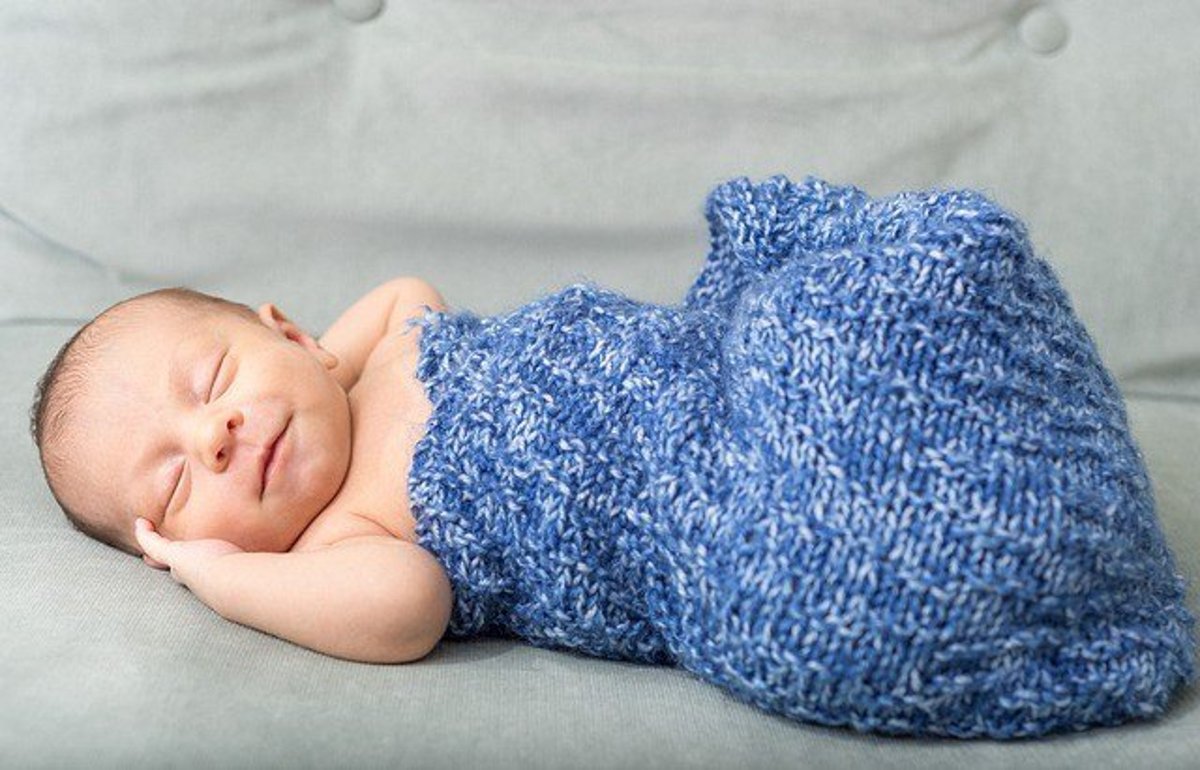“Hypnogely ” is a term used to refer to the common occurrence of laughing in sleep. This can be seen mostly in babies that send parents scrambling for a camera to capture their baby’s first smile! Generally, a baby laughing in sleep is harmless and a sign of their developmental progress. In rare cases, it may be a sign of neurological issues.
Laughing in sleep has something to do with the REM cycle, both for babies and adults. So before we dive into why babies laugh in their sleep, let’s get to know the science hidden behind it.
Table of Contents
What are REM Cycles?
Understanding sleep is important when you seek the reasons behind laughing in sleep. There are two kinds of sleep:
- Rapid eye movement (REM) sleep
- Non-rapid eye movement sleep
Throughout your sleep, you alternate between REM sleep and non-REM sleep. There are 3 phases of non-REM sleep:
- Stage 1: In stage 1 of non-REM sleep, you are just beginning to fall completely asleep from being awake. In this short period, you breathe slowly, your brain waves slow down, and your muscles start to relax.
- Stage 2: In this stage, you sleep light before you get into the deeper stage. Your breathing and heart rate slow down further and your muscles relax even more. Your eye stops moving under your closed eyelid while your brain slows down with only sporadic electrical activity.
- Stage 3: This last stage of sleep is what makes you feel refreshed. It occurs during the first part of your night’s sleep during which your breathing and heartbeat are at their slowest pace along with your brainwaves.
Why is Your Baby Laughing in Sleep?
The reason for a baby laughing in sleep has not yet been made clear by the science community. They don’t know for sure if they laugh because of their dreams, although some myths say they laugh because they remember their past life (that would be awesome if it were true!). Babies do experience a type of REM sleep called active sleep.
It is believed that a baby laughing in sleep is a reflex rather than a response. Most researchers have noted that babies smile or twitch during their active sleep hours. When babies are going through this type of sleep, their bodies tend to make involuntary movements that may contribute to laughter and smiles.
Rarely, certain types of seizures in infants may trigger episodes of uncontrollable giggling. These are called gelastic seizures and they occur for about 20 seconds. Such seizures start by the age of 10 months when the baby is falling asleep or wake them up if they are already asleep.
Once you begin noticing that such seizures are happening regularly (like multiple times a day), take note if the baby is staring vacantly or is showing signs of unusual body movements, grunts, or squirms. Get in touch with your pediatrician so that the diagnosis as early as the process is quite tricky. The doctor will ask you more about the situation and run certain tests to make sure what’s going on.
The Bottom Line: Reasons Behind a Baby Laughing in Sleep
While there are certain instances where a baby laughing in sleep has been linked with serious issues, generally, laughing in sleep is harmless and there’s nothing to worry about. For young children and babies, laughing in sleep is normal and typically not a cause of concern, more so, if they are not accompanied by abnormal behavior.
If you see your baby is being disturbed while sleeping because of their laughs or reflexes, it’s good to have a chat with their pediatrician to check for any serious issues. They may even refer you to a sleep specialist to evaluate further risks if any.
FAQs
- When does a baby start laughing in their sleep?
You will find your baby laughing in sleep at an early age of 0 to 6 weeks. During the REM cycle, your little one’s body is going through several psychological changes that activate certain reflexes such as smiling.
- At what age do babies start laughing hysterically?
By the age of one year (12 months), your baby must have grasped the concept that things exist even if they can’t see them. This is called “object permanence” and the reason behind your baby laughing hysterically. Playing peekaboo or surprise will usually set them off.
- Why do babies look at the ceiling and smile?
Babies are drawn to movement and when they stare at a ceiling, they are looking at a moving fan or a toy. On the other hand, if your baby runs away from moving objects it means they are processing a lot of things at that moment and need to regroup.
- Is it normal for babies to laugh randomly?
Laughter and giggles are common in 5-month-old babies. Specialists and doctors have guidelines developed for parents’ expectations regarding their babies’ growth and one of them is that the babies will start laughing at 5 months of age. This shows their well-being and health.
Visit TheInspireSpy












